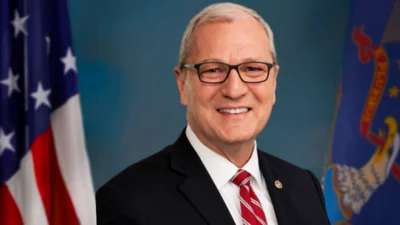Free to use Quote Box onTop of Stack of Paper Bills | Karolina Grabowska
Free to use Quote Box onTop of Stack of Paper Bills | Karolina Grabowska
"You can't just pass one bill and say 'The workforce shortage is solved.' We have to work everywhere we can."That's how Senate Majority Leader David Hogue summarizes the complex issue facing the business community in 2023 — and the efforts being taken in the halls of the North Dakota Capitol Building to alleviate the problem.The Minot Area Chamber EDC caught up with Sen. Hogue during crossover break — the recess period that typically marks the halfway point of the North Dakota Legislative Session. When lawmakers return to Bismarck on March 1st, the Senate will consider bills that passed in the House of Representatives, and vice versa.Sen. Hogue told us that he identified the labor shortage as the most important issue to address this session. "To start the session, we formed a policy committee specifically devoted to workforce development issues. And we have considered a number of major policies directed at solving those issues."One such bill has already passed through both chambers of the legislature and been signed into law by Gov. Doug Burgum. House Bill 1199, which will provide funding to create career and technical education (CTE) academies more quickly. (The bill included an emergency clause, allowing it to reach the Governor's desk earlier than most bills.) Minot North High School will be home to a CTE center known as the Minot Area Workforce Academy, and Minot State University is establishing a CTE center in a building formerly owned by Trinity Health.Several other bills aimed at relieving the workforce shortage have passed through the Senate and will be taken up by the House of Representatives, including:
- Senate Bill 2142 would create an office of immigration within the Department of Commerce. That office would "coordinate and expedite the immigration process" for people moving to North Dakota for work. It would also assist employers connect with newly immigrated people to fill open positions. "We know there are a lot of smaller employers that can't afford to hire international talent recruiters, so we're trying to help them with that process," Sen. Hogue said. The bill was passed by a vote of 39-5 in the Senate.
- Senate Bill 2249 aims to streamline the licensure process for skilled laborers and licensed professionals. "If they want to come to North Dakota, we don't want it to take six months," Sen. Hogue said. The bill would direct the state labor commissioner to "develop and update a strategy for more efficient continuing education requirements and more efficient practices for licensing out-of-state practitioners." The Senate passed the bill by a vote of 43-4.
- Senate Bill 2301 would establish a "child care stabilization program to address child care workforce shortages." If signed into law, the state would provide monthly payments to licensed daycare providers "to directly address the wages and benefits of child care workers." The bill cleared the Senate by a vote of 25-22 and moves to the House of Representatives.
- Senate Bill 2136 would expand eligibility for the "homestead tax credit," which reduces property taxes for people 65 and older. Currently, people whose annual income exceeds $21,000 are deemed ineligible. The senate proposal, which passed by a 45-1 vote, expands eligibility to include people earning up to $100,000 annually.
- Senate Bill 2066 also represents property tax relief by way of reducing school districts' contributions to K-12 education (while increasing state funding for education). Senators voted 42-4 in favor of the plan.
- Senate Bill 2240 would provide funding to North Dakota communities with close ties to the military, including Minot, to support base retention efforts. The bill received unanimous support in the Senate.
- Senate Bill 2293 would exempt military income from taxation. Sen. Hogue said this tax relief could incentivize military personnel to become North Dakota residents. "It's one more thing we can do — and we don't tax military retirement pay either." The bill passed by a vote of 40-4.
- Senate Bil 2094 seeks to expand tuition grants for North Dakota National Guard members to include out-of-state colleges and universities. The change would accommodate Guard members who intend to take online or remote classes through an out-of-state school. "Hopefully this helps people stay in North Dakota," Sen. Hogue said. The proposal received unanimous support.
- Saturday, March 11, 2023 — 9:00am to 11:00am — Minot State University Student Center, 3rd Floor Conference Room
- Saturday, March 25, 2023 — 9:00am to 11:00am — North Dakota State Fair Center
- Saturday, April 1, 2023 — 9:00am to 11:00am — North Dakota State Fair Center


 Alerts Sign-up
Alerts Sign-up